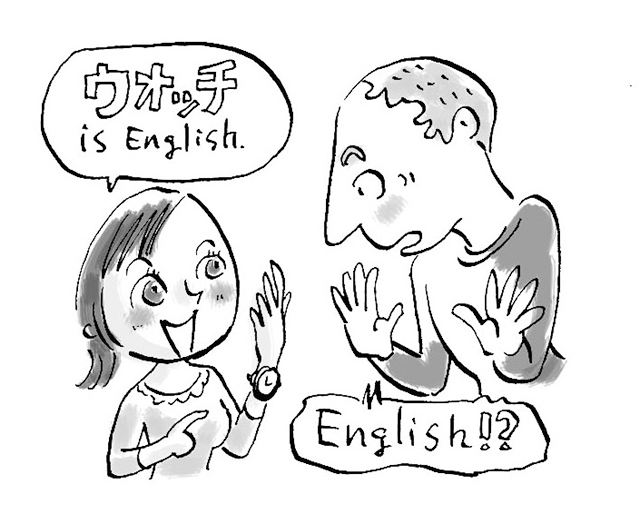More English words are being used as Japanese!

Foreign words are expressed in Japanese using katakana except those words that are from regions where kanji is used. These foreign words are called “gairaigo” (adopted words from foreign countries), and recently their number has been greatly increasing. In particular, the more widely English spreads as an international language, the more often English words are adopted into Japanese. Let’s take personal belongings as an example. Neck-tie, suit, skirt, shoes, watch, and other many words have already been adopted into the Japanese vocabulary.
Until only a few decades ago, the word “Ryoken” was used for “passport,” and “Sashou” was used for “visa,” but these days, anyone hardly uses those words. It is very probable that more and more English words will be adopted into the Japanese vocabulary in future. In order to protect the “beautiful Japanese language,” not a small number of people have issued warnings about this phenomenon. However, the Japanese, who once had no written characters of their own, have a history of adopting kanji from China and creating hiragana and katakana from them.
English words are converted into katakana in a way that maintains a very similar pronunciation, therefore, they are not correctly written. And yet the method of writing differs depending on the person (For example, the word “visa” can be written as “ヴィザ” or “ビザ”). Japanese may assume that foreigners will be able to study Japanese more easily if more English words can be adopted into Japanese, but in fact many Japanese learners seem to be puzzled.
Basically, katakana is used for foreign words, but hiragana is sometimes substituted for words such as “budou” (grape) and “ichigo” (strawberry).
